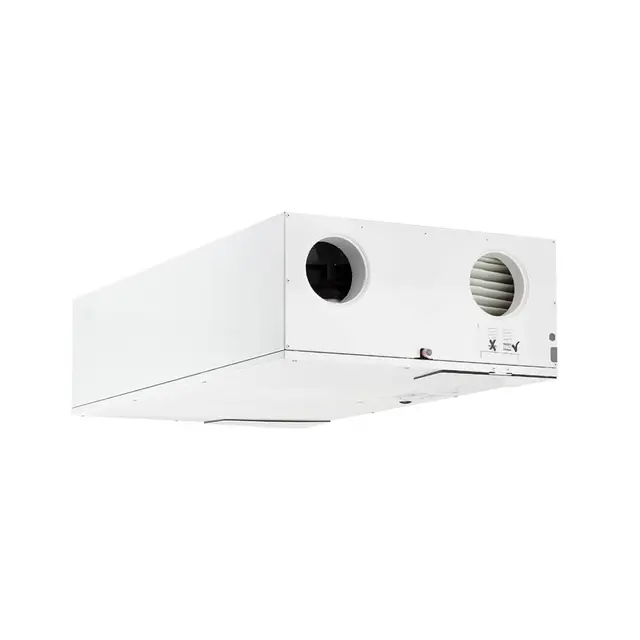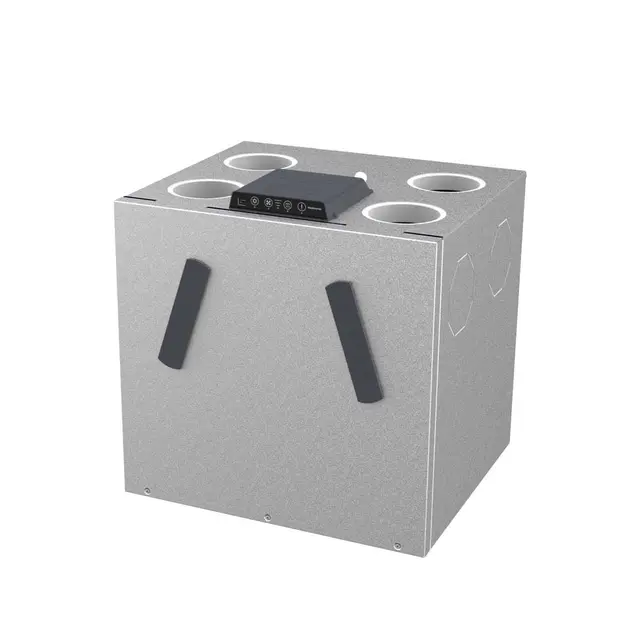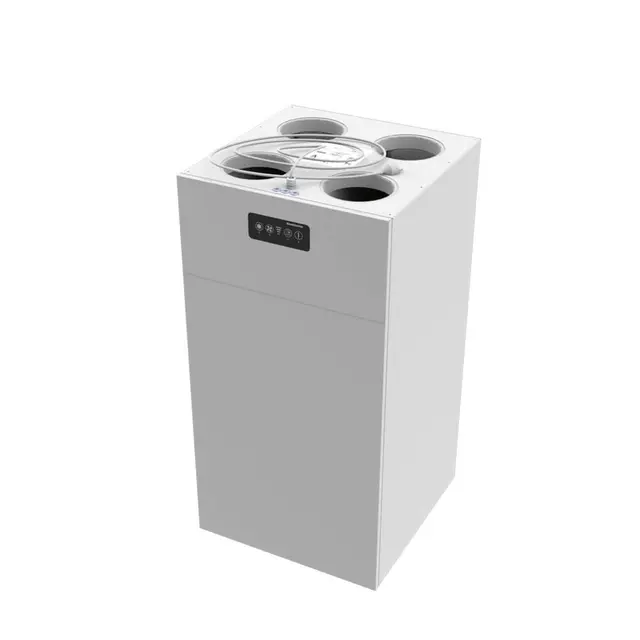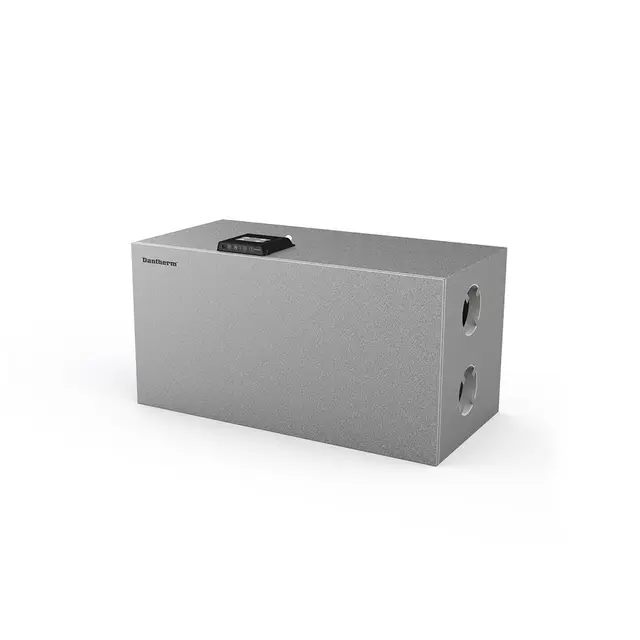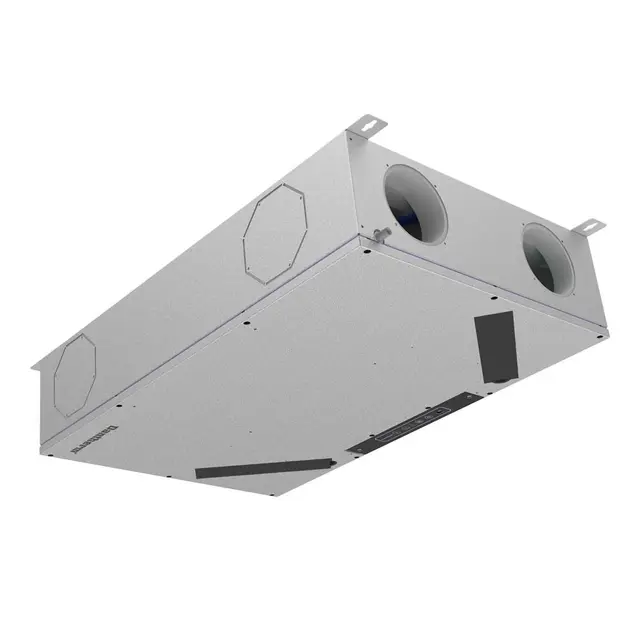How does humidity-controlled ventilation work?

- Home
- Insights
- Ventilation insights
- How does humidity-controlled ventilation work?
Learn how a residential ventilation unit with automatic demand-controlled settings enables you to create and sustain the ideal humidity levels throughout a building, without the occupant having to lift a finger.
A residential ventilation system constantly monitors the air humidity in the home and adjusts the ventilation automatically until the air quality and moisture level are optimal. Meanwhile, up to 96% of the heat from the exhaust air in the kitchen, living room and bathroom is reused to heat up the supply air, effectively creating a pleasant temperature using a minimum of energy. This provides both air renewal and a healthy indoor climate.
High air humidity creates ideal conditions for dust mites and mould, while low air humidity dries out homes, resulting in wooden floors that crack along with irritated mucous membranes and eyes. In northern Europe, the relative humidity (RH) in a home varies according to the season as it is determined by the weather outside. In winter, the RH should be around 40-45% and never under 35%.
Get our full guide on selection and installation of residential ventilation solutions right here: Selection Guide for Residential Ventilation
Mechanical and demand-controlled ventilation
A mechanical ventilation system extracts moisture from the kitchen, bathroom, toilet and utility room and supplies fresh outdoor air to living spaces such as living rooms and bedrooms. The ventilation must be balanced so it adds the same amount of air as it extracts.
All Dantherm residential ventilation systems use automatic demand-controlled ventilation. Via built-in humidity sensors, which constantly monitor and measure the moisture content in the extracted air, the fan speed is adjusted automatically in relation to moisture content. This reduces energy consumption during periods with less need for ventilation. Demand control can also be done using an optional CO2-sensor and/or VOC air quality sensor, which regulate the need for ventilation.
New builds and remodelling projects call for heat recovery solutions
In connection with new builds and bigger remodelling projects, a mechanical ventilation system should be used with heat recovery, where the heat from the extracted air is used to heat up the cooler supply air. The most efficient way to do this is with a counter-flow heat exchanger, where the two airstreams pass each other, thereby transferring the heat without mixing the air flow.
The air passes through the ventilation ducts, which are connected by supply and exhaust air valves. The ventilation unit includes a regulating section that covers the control of temperature, humidity and air volume, for example. The air is led in and out of intake and exhaust grilles on the outside of the house. Remember that the positioning and distance between these grilles must comply with currently applicable legislation.
For more information, please download Dantherm’s full Selection Guide for Residential Ventilation.
Related products
Featured insights

Find out how to improve the air quality in your house
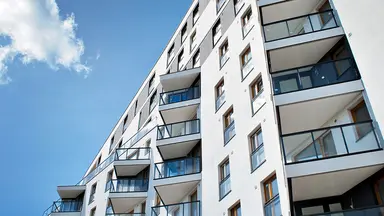
Thermal efficiency, SFP, fire safety and heat exchanger are key to your choice

Get our comprehensive 28-page guide for installers and other professionals here
Need help with choosing the right solution? Our team of over 100 climate control experts can assist.
You can also reach out or join the discussion on our Social Media. Check out our LinkedIn page.
